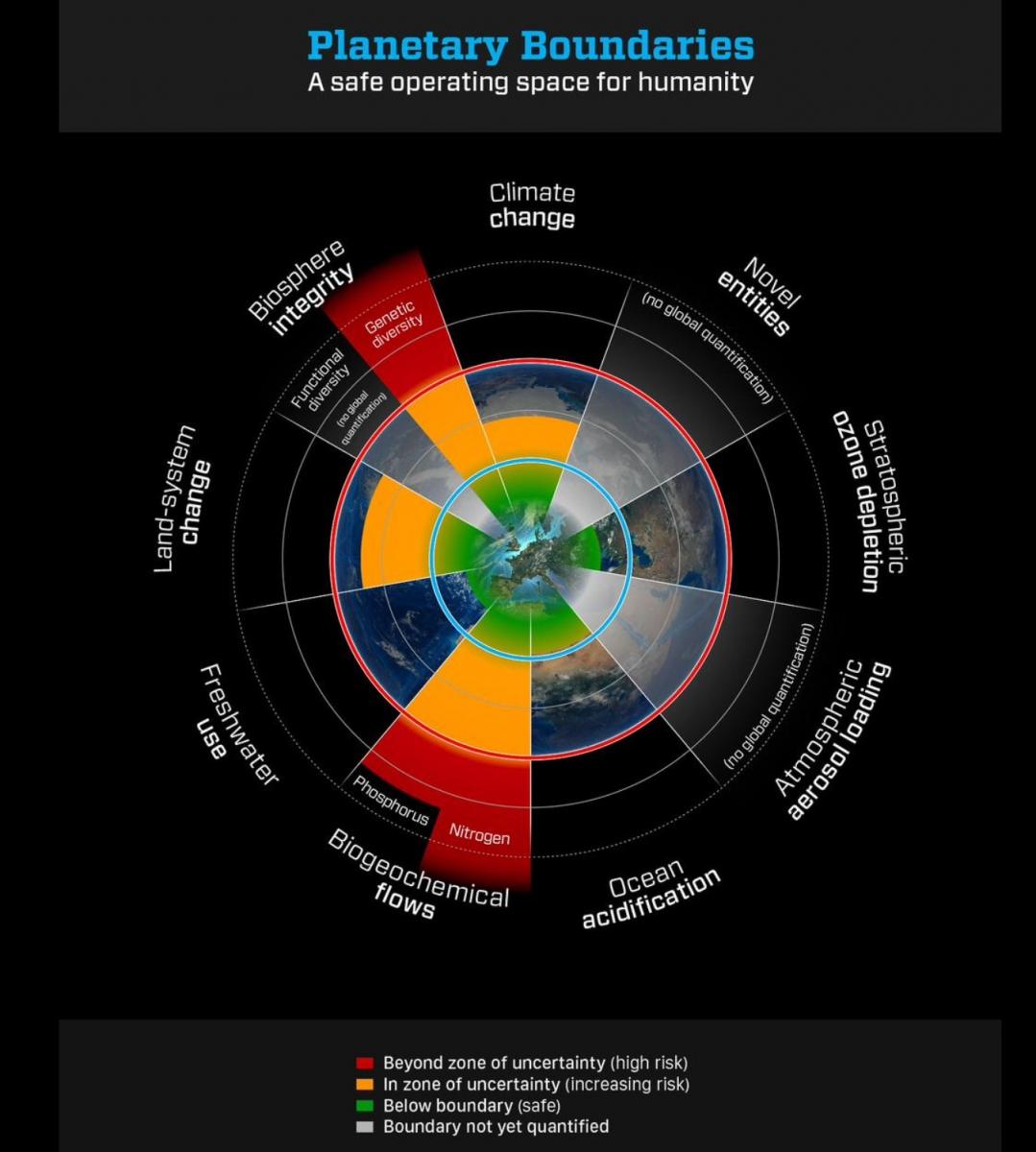You are here
Planetary Boundaries: Guiding Human Development on a Changing Planet
Primary tabs
CLICK HERE - RESEARCH - Planetary boundaries: Guiding human development on a changing planet
As Science publishes the updated research, four of nine planetary boundaries have been crossed: climate change, loss of biosphere integrity, land-system change, altered biogeochemical cycles (phosphorus and nitrogen). Image source: F. Pharand-Deschênes /Globaïa
stockholmresilience.org
Planetary Boundaries 2.0 – new and improved
As Science publishes the updated research, four of nine planetary boundaries have been crossed
Four of nine planetary boundaries have now been crossed as a result of human activity, says an international team of 18 researchers in the journal Science (16 January 2015). The four are: climate change, loss of biosphere integrity, land-system change, altered biogeochemical cycles (phosphorus and nitrogen).
Two of these, climate change and biosphere integrity, are what the scientists call "core boundaries". Significantly altering either of these "core boundaries" would "drive the Earth System into a new state".
"Transgressing a boundary increases the risk that human activities could inadvertently drive the Earth System into a much less hospitable state, damaging efforts to reduce poverty and leading to a deterioration of human wellbeing in many parts of the world, including wealthy countries," says Lead author, Professor Will Steffen, researcher at the Centre and the Australian National University, Canberra. "In this new analysis we have improved our quantification of where these risks lie."




Recent Comments